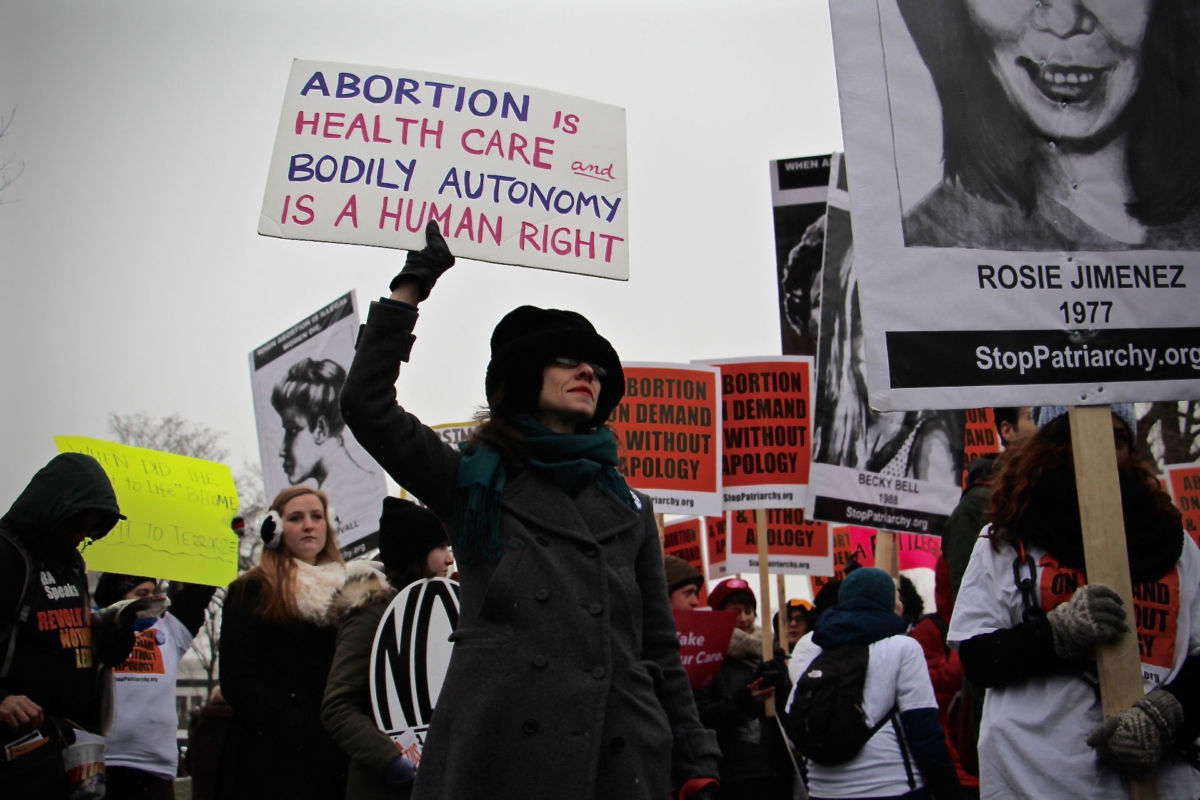Did you know that Truthout is a nonprofit and independently funded by readers like you? If you value what we do, please support our work with a donation.
Within a matter of weeks, anti-abortion lawmakers have made multiple attempts to ban insurance coverage of abortion and make care unaffordable and out of reach. In November, the Trump administration proposed rules to require insurers on the Affordable Care Act (ACA) marketplace to send every enrolled person a separate monthly bill for abortion coverage. If enacted, new rules would force health plans to increase overhead costs for insurers that do provide coverage for abortion care, confusing plan enrollees who may get dropped from their plans if they do not understand that now they have to send separate payments every month.
The administration’s latest proposal in January would require those same insurers who offer abortion coverage to also offer a mirror plan that doesn’t cover abortion. (However, this rule would not apply to states that mandate abortion coverage, such as New York, California, Washington and Oregon.) Both of these rules are designed to dissuade insurers from offering abortion coverage and create confusion among consumers.
Not satisfied with these backdoor bans, the Senate recently introduced a sweeping bill that would have expanded the harms of existing coverage bans and written them into permanent law. While this bill was defeated, altogether, these insurance coverage restrictions disproportionately hurt those struggling to get by, interfere in people’s ability to make decisions about whether and when to become a parent, and perpetuate stigma and judgment surrounding abortion.
One in four women in the U.S. has had an abortion by 45. Think of all the women in your life — how many have felt comfortable sharing an abortion story? We don’t hesitate to talk about a knee replacement or gall bladder surgery, but abortion is still whispered about, or not talked about at all. Laws and policies like the ones proposed by this administration contribute to that stigma by isolating abortion from other types of medical and health care, and making people jump through unnecessary hoops to access care.
Abortion opponents want to shame and punish those who seek abortion care, as well as the families and friends who support them, providers who care for them, researchers who study their experience, activists who fight for their rights and journalists who write their stories. No other type of health care is restricted to the degree that abortion is, from laws that dictate what size hallways a clinic must have to how a person is able to find the funds to pay for care.
All of this is in spite of multiple studies (like this one and this one), which show that abortion is a safe and normal part of health care in the United States. A landmark study by the National Academies of Sciences, Engineering, and Medicine (NASEM) also concluded that having an abortion has no impact on future fertility, breast cancer risk or likelihood to experience mental health disorders, and that most abortion procedures can be performed safely by an advanced practice clinician or a trained physician.
In fact, the NASEM report found the biggest threats to the quality of abortion care are unnecessary regulations on abortion facilities, onerous provider requirements, limited provider training opportunities, as well as the lack of insurance coverage for abortion in Medicaid and other insurance programs. Restrictions on abortion coverage like the ones the administration is pushing, force people to delay care, hinder access to abortions and can push people deeper into poverty.
The proposed rules and failed Senate bill are not about quality health care or what’s best for reproductive health and families. These restrictions and those who propose them perpetuate a vicious cycle where stigma leads to restrictions, and restrictions lead to stigma. All of this happens in the face of sound and independent research, and directly harms people — particularly those with low incomes, people of color, those with disabilities, and rural residents.
Those who are struggling to make ends meet are more likely to seek abortion; they make up more than 49 percent of abortion patients. African American and Latinx women, too, are more likely to experience unintended pregnancies and consequently have greater need for abortion care, while at the same time having fewer resources to navigate restrictions and pay out-of-pocket where care is uninsured.
People of color historically have been more likely to be uninsured and to face more barriers accessing care, but they also had larger gains in coverage since the implementation of the ACA, helping to narrow racial and ethnic disparities in coverage. These gains are undermined by restrictions that cherry-pick what medical care can or cannot be covered. Everyone should be able to make decisions about abortion with dignity and respect, and without politicians interfering — and a majority of Americans agree.
Abortion stigma is having a real and damaging effect on health, and those who have the biggest health care needs pay the steepest price. When speaking about reproductive health care, we cannot allow those with a narrow political agenda to sideline abortion care. We will never be able to quantify the harms of restricting abortion until we can place it in the full context of people’s health and lives.
It’s time to start talking about abortion — lives depend on it.
Press freedom is under attack
As Trump cracks down on political speech, independent media is increasingly necessary.
Truthout produces reporting you won’t see in the mainstream: journalism from the frontlines of global conflict, interviews with grassroots movement leaders, high-quality legal analysis and more.
Our work is possible thanks to reader support. Help Truthout catalyze change and social justice — make a tax-deductible monthly or one-time donation today.
